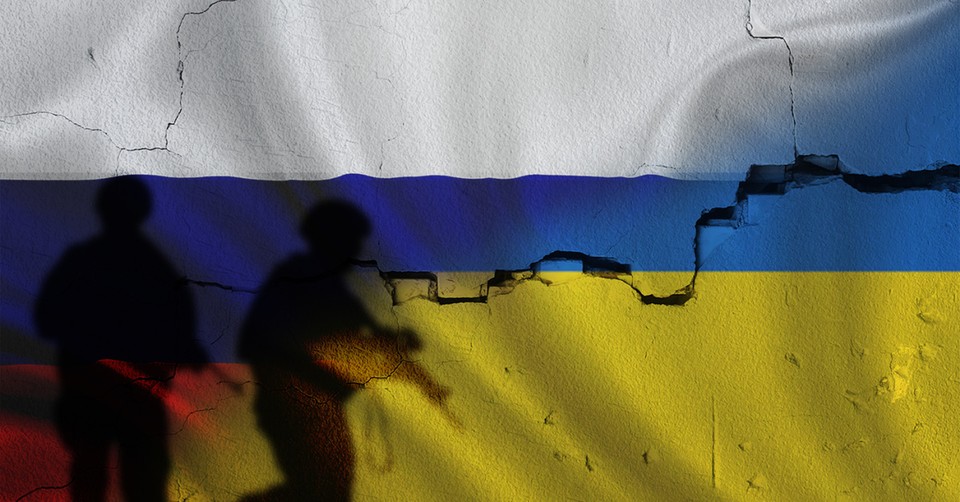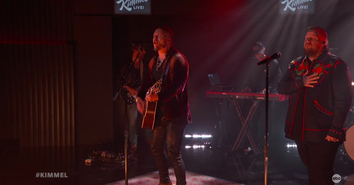What’s Next for Ukraine and Russia?

When Ukrainian President Volodymyr Zelenskyy was granted permission by the Biden administration to fire American long-range missiles deep into Russia, Zelenskyy didn't waste any time following through. On Tuesday, He fired six into a Russian military facility in the Bryansk border region, according to CNBC. Russia's Ministry of Defense claimed that Russia shot five of them out of the sky and that the sixth one was severely damaged.
"Its fragments fell on the technical territory of a military facility in the Bryansk region, causing a fire that was quickly extinguished. There were no casualties or damage," the Ministry of Defense told CNBC.
Likewise, Russia's President Vladimir Putin didn't waste any time with a verbal response. He announced that he updated the language of Russia's nuclear doctrine to indicate that Russia would consider the use of nuclear weapons if it or its ally, Belarus, were attacked "by any non-nuclear state with the participation or support of a nuclear state" according to MSN.
Russian Foreign Minister Sergei Lavrov said Russia sees this situation as the West choosing to "escalate" the conflict.
"We will be taking this as a qualitatively new phase of the Western war against Russia. And we will react accordingly," Lavrov said during a press conference at the G20 summit in Brazil, according to MSN.
How Some Countries Are Responding to the Conflict's Escalation
Russians living in the cities of Warsaw and Kraków in Poland have been marching through Warsaw demanding that Russia withdraw its troops from Ukraine, set Russian political prisoners free, and put on trial and punish Vladimir Putin and other Russian authorities for war crimes, according to Notes from Poland.
Polish Chief of General Staff Raimund Andrzejczak issued a warning to Russia last month that if Russia were to attack Poland or any of the Baltic States, Poland would directly strike at St. Petersburg. At that time, Poland was in the process of purchasing 800 missiles with a range of over 550 miles as a means of protecting itself and its allies, according to The New Voice of Ukraine.
Sweden and Norway have sent out emergency preparedness booklets to all of their citizens, which give instructions on what they can do to survive in the event of a national emergency or a war, according to The Express.
Romania has been quietly building up its defenses and purchasing ammunition, especially since Russian drones have been wandering in and out of their airspace for about a year now. Romanian Defense Minister Angel Tîlvăr has been in contact with NATO, saying that "A robust, coordinated response on an allied level is needed, as well as enforcing the rotational air defense and integrated anti-missile model as soon as possible," According to Business Insider.
Speculation Regarding Russia's Response to Ukraine
The world seems to be holding its breath regarding what's going to happen next in the Russian-Ukraine conflict. Elbridge Colby, Former Deputy Assistant Secretary of Defense, told CNBC in an interview that he thinks the most likely response from Putin is going to be an increase in aid to the Houthis, North Korea, China, and Iran. He also said he feels the response of the Biden administration to give Ukraine permission to use the missiles was "bizarre and, I think, inappropriate given it's in the transition period. The American people elected President Trump on a very different policy platform."
Restore Liberty co-founder Army Lt. Col. Darin Gaub told WND that he believes, "This entirely has to do with [the Biden administration] trying to tie Trump's hands to a war, dampening his ability to achieve the agenda that the American people want him to achieve."
Mark Champion, an international affairs columnist at Bloomberg, said he believes Putin will respond by giving various munitions to America's enemies, as well as carrying out acts of sabotage, such as cutting underwater communication cables in the Baltic Sea, according to Bloomberg.
The communication cables to which he is referring connected Germany and Finland, and separate cables connecting Lithuania to Sweden were also severed. It's not been proven that Russia is to blame, but it's strongly suspected.
"No one believes that these cables were cut accidentally," German Defense Minister Boris Pistorius told NBC News.
Photo Credit: ©Getty Images/IherPhoto

Originally published November 20, 2024.





